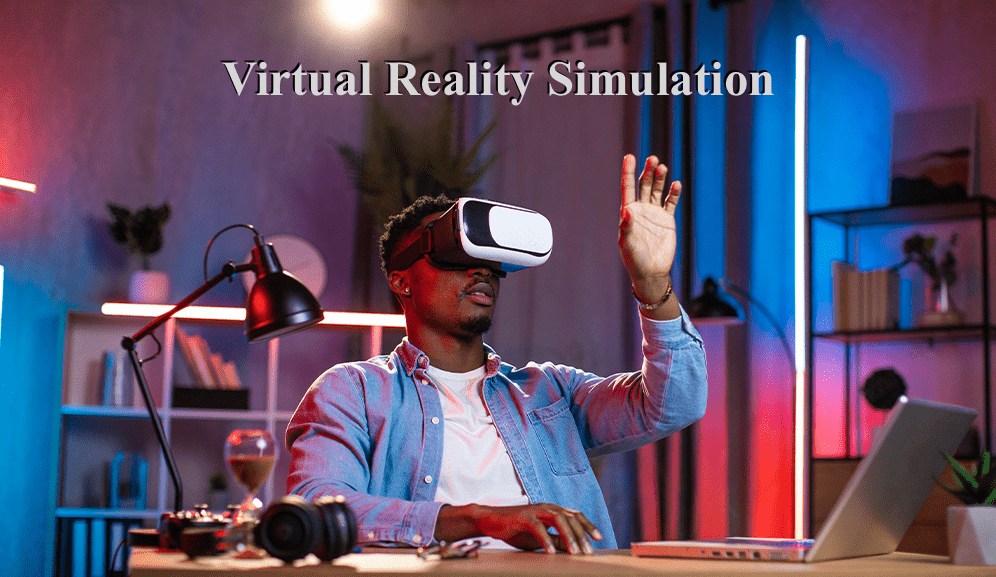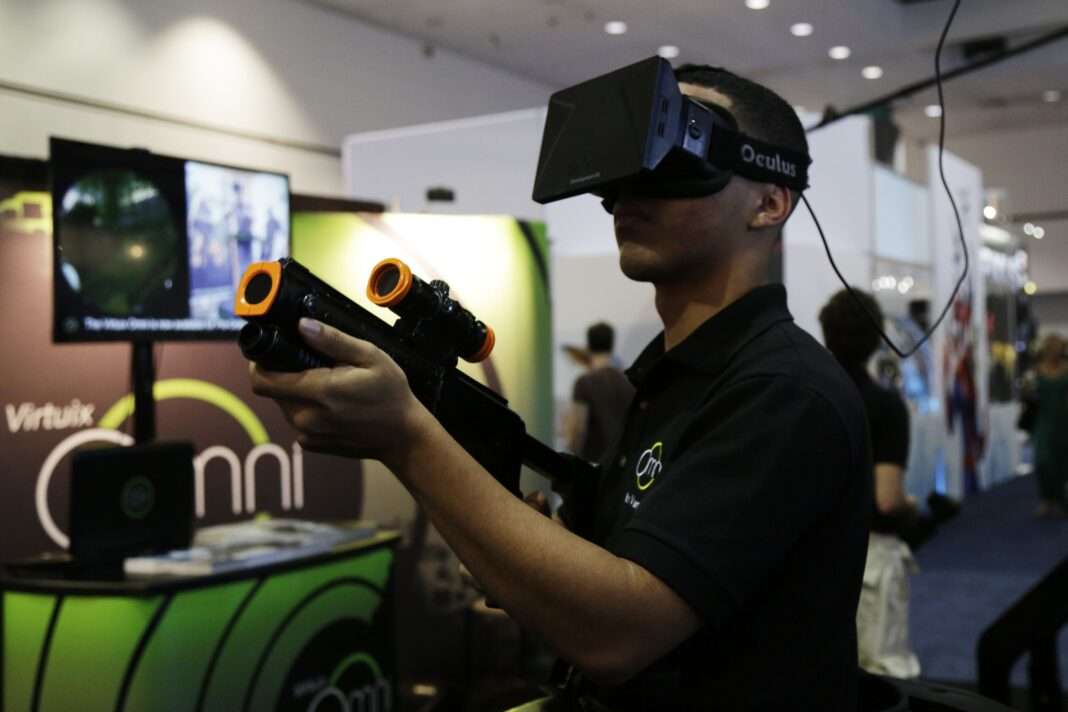Virtual reality technology has revolutionized the way we experience digital content by immersing us in virtual worlds. Just by simulating our physical presence and interactions within computer-generated environments, VR creates an unparalleled sense of presence and engagement.
In this article, we will talk about the world of virtual reality, exploring its evolution, applications, advancements in hardware, and it’s potential for the future.
The Evolution of Virtual Reality Technology
Virtual reality technology has come a long way since its inception. Initially, VR was primarily associated with bulky headsets and limited graphical capabilities. However, with advancements in computing power, graphics rendering, and motion tracking, modern VR systems offer incredibly realistic and immersive experiences.
From early experiments to contemporary consumer-grade headsets, the evolution of VR technology has paved the way for diverse applications across various industries.
Useful Guides
- Apple’s TipKit Make iOS App Building Much Easier
- Mark Zuckerberg has this to say about Apple Vision Pro
- My Experience with Apple Vision Pro after Trying it Out
- Rubik’s Cube – A Guide to Solve the Popular Puzzle Game
- List of Parental Control Software for PC, Mac, iOS and Android
- Apple Vision Pro VR Headset Features, Price, Spec, Video and Release date
Applications of Virtual Reality Technology
Virtual reality finds applications in a wide range of fields, transcending entertainment alone. Let’s explore some of the key domains where VR has made a significant impact:
1. Gaming
Virtual reality software has transformed the gaming industry by providing gamers with an unprecedented level of immersion. With VR headsets and motion controllers, players can step into virtual worlds and interact with the environment in ways that were previously unimaginable.
2. Education and Training
VR has immense potential in education and training. By creating realistic simulations, students can explore historical sites, conduct scientific experiments, or practice complex procedures in a safe and controlled virtual environment.
3. Healthcare
Virtual reality has found numerous applications in healthcare, from pain management to therapy and surgical training. VR technology enables patients to undergo immersive experiences that can distract them from pain or anxiety, improving their overall well-being.
4. Architecture and Design
Architects and designers benefit from VR technology as it allows them to visualize and experience virtual representations of their creations. By exploring virtual environments, they can make informed decisions, assess spatial relationships, and detect potential issues before construction begins.
5. Travel and Tourism
Virtual reality has the potential to revolutionize the travel industry by offering virtual tours and immersive experiences. Travelers can explore destinations from the comfort of their homes, giving them a taste of what awaits them in real life.

Advancements in Virtual Reality Hardware
The development of hardware plays a vital role in enhancing the virtual reality experience. Over the years, we have witnessed significant advancements in VR hardware, resulting in more comfortable and immersive user experiences.
From lightweight and ergonomic headsets to high-resolution displays and precise motion tracking, these technological advancements have made VR more accessible and enjoyable for users worldwide.
Virtual Reality and Gaming
Gaming and virtual reality go hand in hand, opening up new dimensions of interactive entertainment. VR gaming offers players an unparalleled level of immersion, blurring the line between the physical and virtual worlds.
From realistic simulations to fantastical adventures, VR gaming provides a truly captivating experience that transports players to extraordinary realms.
Virtual Reality in Education and Training
The integration of virtual reality in education and training has the potential to revolutionize traditional learning methods. Simply by leveraging VR technology, educators can create engaging and interactive lessons that foster deeper understanding and retention of knowledge. VR simulations can simulate real-world scenarios, enabling students to gain practical experience in a controlled environment.
Virtual Reality in Healthcare
In the healthcare industry, virtual reality is transforming patient care and medical training. VR can be used for pain management, distraction during procedures, and therapeutic interventions. Moreover, surgeons can practice complex surgeries in virtual environments, refining their skills and reducing the risks associated with live operations.
Virtual Reality in Architecture and Design
Architects and designers are utilizing virtual reality as a powerful tool for visualization and collaboration. With VR, professionals can walk through virtual representations of their designs, gaining a better understanding of space, lighting, and aesthetics. This technology enables them to make informed decisions and communicate their vision effectively.
Virtual Reality in Travel and Tourism
Virtual reality has the potential to revolutionize the travel and tourism industry. Through immersive experiences, travelers can explore destinations and attractions virtually before making their travel plans. Virtual reality tours provide a glimpse into different cultures, historical landmarks, and natural wonders, enticing tourists and enhancing their travel experiences.
Challenges and Limitations of Virtual Reality
While virtual reality technology holds immense promise, it also faces certain challenges and limitations. Some of these include:
- Cost: High-end VR equipment can be expensive, limiting widespread adoption.
- Motion Sickness: Some users may experience discomfort or motion sickness when using VR headsets.
- Accessibility: VR experiences require specialized hardware, which may not be accessible to everyone.
- Ethical Considerations: VR raises ethical concerns regarding privacy, addiction, and the blurring of virtual and real experiences.
- Content Limitations: Developing high-quality VR content can be time-consuming and resource-intensive.
The Future of Virtual Reality
The future of virtual reality is brimming with possibilities. As technology continues to advance, we can expect further improvements in VR hardware, increased affordability, and a wider range of applications. Virtual reality has the potential to transform industries, revolutionize entertainment, reshape education, and create new opportunities for immersive experiences.
Conclusion
Virtual reality technology has ushered in a new era of immersive experiences, captivating users across various industries. From gaming and education to healthcare and architecture, VR is revolutionizing the way we interact with digital content. As advancements continue to unfold, virtual reality is poised to reshape our lives and unlock new frontiers of human-computer interaction.
New Topics
- Top 12 Tech Company Stocks to Watch, Buy Right Now and Invest today
- Mobile Gaming Makes 77% of The Entire Industry’s Revenue but Gamers Overlook it
- People Likes Playing Video Games More Than TV – Why Gen Z Spend 12 Hours Per Week on Average Playing Games
- 12 Best Virtual Trading Apps for Options and Stimulators: Free Virtual Trading Without Real Money
- 11 Best Stock Trading Platforms + Apps in the World for Beginners and Pro [Free and Paid]







